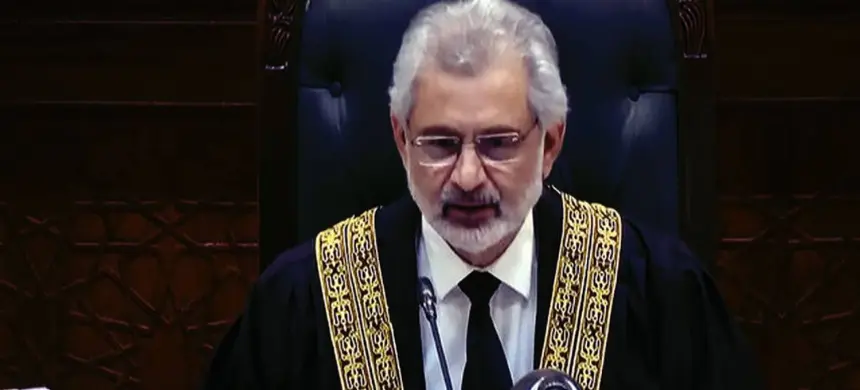Chief Justice of Pakistan Qazi Faez Isa addressed the Supreme Court’s decision regarding the allocation of specific reserved seats. He clarified that the Election Commission of Pakistan (ECP) misinterpreted the court’s decision by declaring candidates supported by the Pakistan Tehreek-e-Insaf (PTI) as independent, a move that was beyond the ECP’s authority. Chief Justice Isa emphasized that the PTI, as a parliamentary party, is entitled to certain reserved seats, and noted that the decision of the Peshawar High Court regarding the distribution of reserved seats, and the order of the election commission in light thereof, is upheld. However, since the ECP failed to include PTI in this allocation of reserved seats, the Supreme Court has annulled this part of the Peshawar High Court’s decision and the corresponding ECP order.
Read More: Ex-CJP Jillani Abstains From Leading IHC Probe
During the hearing, it was revealed that numerous candidates had submitted affidavits with their nomination papers, affirming their candidacy under the PTI and providing party certificates as proof. Despite this, the ECP had erroneously interpreted the Supreme Court’s order and declared these candidates as independents, an action beyond its jurisdiction. Importantly, the PTI or any of its candidates had not approached the court against the ECP’s order, nor had they contested the ECP’s move to declare them independent in the high court. Nevertheless, as these matters pertain to the ongoing election process under the ECP, the Supreme Court has the authority to review the constitutionality of the ECP’s decisions.
Consequently, the Supreme Court has declared that PTI is entitled to its proportional share of reserved seats as a parliamentary party. The Chief Justice directed the ECP to redistribute the reserved seats accordingly, ensuring that PTI, along with other parties, receives the correct allocation. This decision ensures that the PTI receives its fair share of reserved seats, maintaining the integrity of parliamentary representation as per the law.











